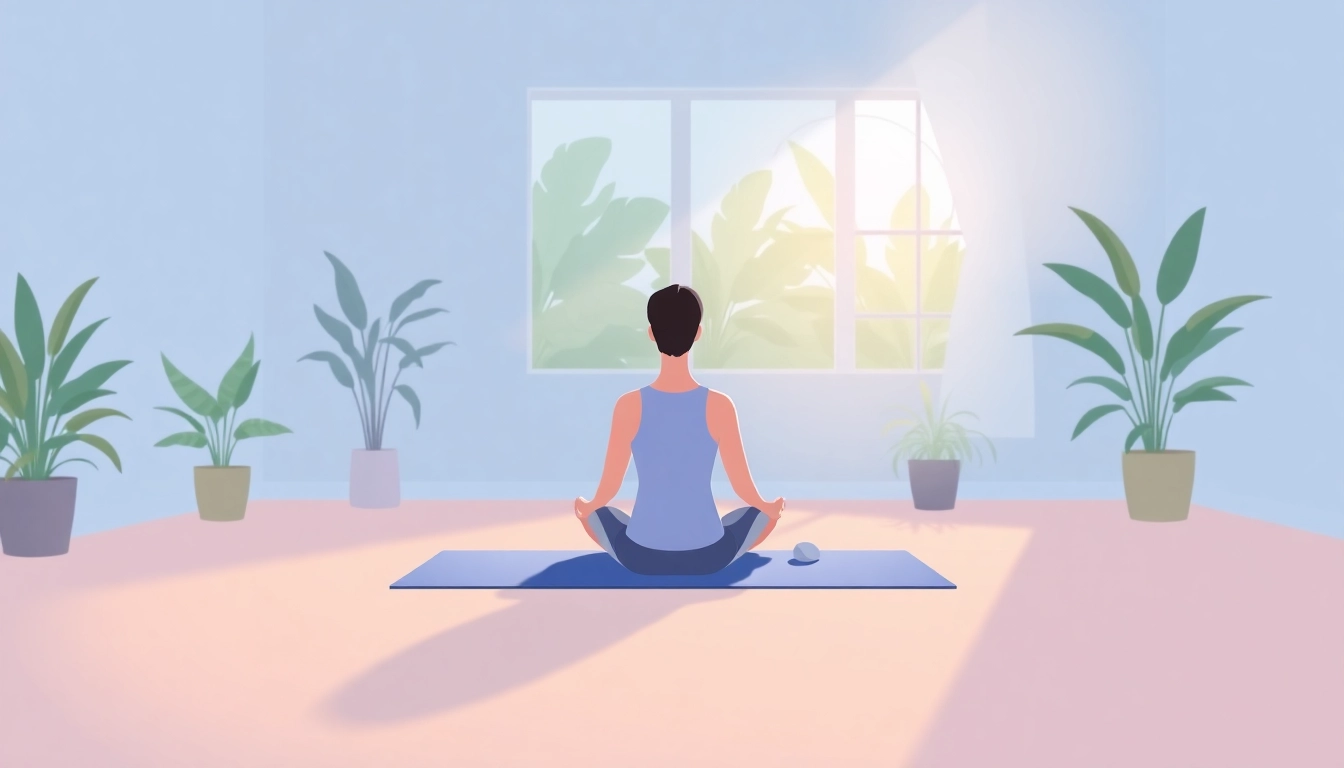Understanding Anxiety and Its Symptoms
What is Anxiety?
Anxiety is a natural human response to stress or perceived danger, serving as an evolutionary mechanism designed to keep us safe. However, when anxiety becomes excessive or chronic, it can manifest as an anxiety disorder, impacting daily life and overall mental health. According to the dealing with anxiety insights from mental health professionals, anxiety disorders are among the most common mental health conditions worldwide, with millions affected each year.
Common Symptoms of Anxiety
Symptoms of anxiety disorders can vary widely from person to person but typically include a combination of emotional and physical manifestations. Common emotional symptoms include feelings of nervousness, restlessness, and impending doom, while physical symptoms might encompass rapid heartbeat, sweating, trembling, and difficulty sleeping. It is important to recognize these signs early, as they can significantly affect an individual’s quality of life.
Types of Anxiety Disorders
There are several types of anxiety disorders, each with its unique characteristics:
- Generalized Anxiety Disorder (GAD): Characterized by excessive worry about various aspects of life, including health, finances, and relationships.
- Panic Disorder: Involves frequent, sudden feelings of terror or panic attacks, often accompanied by physical symptoms like chest pain.
- Social Anxiety Disorder: A profound fear of social situations that may lead to embarrassment or humiliation.
- Specific Phobias: Intense fear of specific objects or situations, such as heights, spiders, or flying.
- Obsessive-Compulsive Disorder (OCD): Characterized by uncontrollable, recurring thoughts (obsessions) and behaviors (compulsions).
Identifying Triggers of Anxiety
Emotional Triggers
Emotional triggers are often linked to past experiences and can lead to heightened anxiety levels. Common emotional triggers include trauma, loss, or significant life changes, such as divorce or a job loss. Understanding these triggers through journaling or therapy can help mitigate their impact.
Situational Triggers
These triggers are related to specific events or circumstances that induce anxiety. For instance, public speaking, tests, or even crowded places can provoke anxiety responses in sensitive individuals. Identifying these events can help in creating strategies to cope more effectively.
Physical Triggers
Physical triggers often include factors that affect the body’s internal state, such as caffeine, lack of sleep, or poor nutrition. Monitoring these triggers can provide insight into managing anxiety symptoms effectively, allowing individuals to adopt healthier lifestyles.
Coping Strategies for Dealing with Anxiety
Mindfulness and Relaxation Techniques
Mindfulness practices, such as meditation and deep-breathing exercises, can significantly reduce anxiety levels. Engaging in mindfulness helps individuals to ground themselves in the present moment, reducing spiraling thoughts. Yoga and tai chi are also effective in promoting relaxation and releasing built-up tension in the body.
Physical Activities to Alleviate Anxiety
Regular physical activity is one of the most effective strategies to combat anxiety. Exercise releases endorphins, often referred to as ‘feel-good’ hormones, which can improve mood and reduce symptoms of anxiety. Activities such as walking, running, or even dancing can be beneficial. Experts recommend aiming for at least 150 minutes of moderate exercise each week.
Nutritional Choices That Support Mental Health
What we eat plays a crucial role in our mental health. Diets rich in omega-3 fatty acids, whole grains, fruits, and vegetables can support brain health and improve mood. Avoiding processed foods and excessive sugar can also help mitigate anxiety symptoms. It’s essential to recognize that a balanced diet can impact emotional well-being dramatically.
Seeking Professional Help for Anxiety
When to Consult a Therapist
Recognizing when to seek help is paramount in managing anxiety effectively. If anxiety begins impacting daily functions, relationships, or overall well-being, it may be time to consult a mental health therapist. Professionals can provide tailored guidance and support essential for recovery.
Types of Therapy for Anxiety Disorders
Therapeutic options for anxiety disorders include various approaches:
- Cognitive Behavioral Therapy (CBT): A widely practiced form of therapy that helps individuals identify and alter negative thought patterns contributing to anxiety.
- Exposure Therapy: This technique encourages gradual exposure to anxiety-inducing stimuli in a controlled environment to foster comfort and diminish fear responses.
- Dialectical Behavior Therapy (DBT): Originally developed for borderline personality disorder, it is effective for anxiety, teaching coping mechanisms and emotional regulation.
Medication Options for Managing Anxiety
For some individuals, medication is a necessary component of managing anxiety. Antidepressants, benzodiazepines, and beta-blockers are often prescribed based on an individual’s specific needs. Consultation with a healthcare provider is crucial to determine the best course of action, ensuring that medications are used safely and effectively.
Building a Support Network
The Importance of Social Support
Developing a robust support network is vital for anyone facing anxiety. Friends, family, and support groups can provide comfort, understanding, and perspective. Engaging with others who experience similar challenges can foster a sense of belonging and reduce feelings of isolation.
How to Talk About Your Anxiety with Others
Communicating about anxiety can be daunting, yet it is an essential step toward gaining support. Practicing what to say beforehand, focusing on expressing feelings rather than just symptoms, and choosing understanding individuals can facilitate productive conversations. Being open about what you’re experiencing invites empathy and support.
Resources and Communities for Ongoing Support
Numerous resources are available for those struggling with anxiety. Online forums, local support groups, and mental health organizations provide valuable information and community connections. Websites like the National Alliance on Mental Illness (NAMI) and Anxiety and Depression Association of America (ADAA) offer assistance and resources to navigate anxiety challenges effectively.
